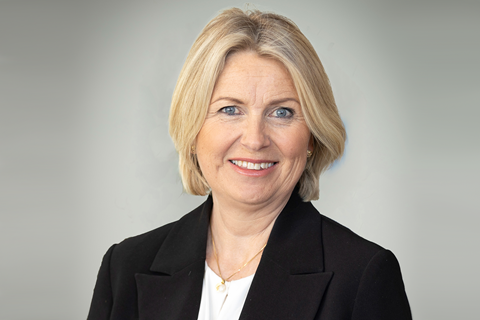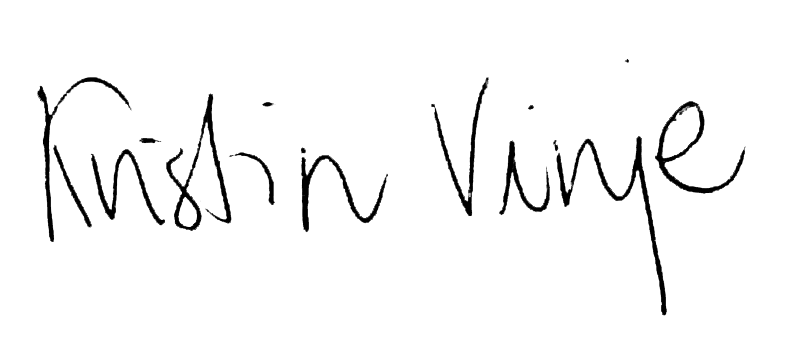Foreword
Table of contents Download the annual report in pdf (Norwegian only)

NOKUT has an important social mission. We are tasked with contributing to public trust in the quality of Norwegian higher education and tertiary vocational education. We do this in several ways: through supervision, accreditation, evaluations, and the development of relevant regulations. All of this is done with the purpose of ensuring educational quality and stimulating its development. If I were to highlight one word that has characterised the discussions in our sector in 2024, it would be educational quality. What is required to achieve good educational quality has become especially relevant due to several high-profile cheating cases and the ongoing increase in the number of universities in Norway. In the autumn of 2024, the University of Inland Norway saw the light of day, and this sparked immediate comments. Does quality decline as the number of universities increases? New accreditation requirements for university status were adopted, adding further fuel to the discussion. Does reducing the number of required PhD programs for university status automatically result in poorer educational quality? My answer is no. There is no simple correlation between the number of universities and the quality of higher education.
When an institution works to change its category from a university college to a university, it involves strengthening both research and education. They increase academic competence and research activity to meet the strict requirements of the current framework for university accreditation. This benefits students, academic communities, the labour market, and society as a whole.

Adapting to societal changes
Like society at large, the landscape of universities and university colleges is constantly evolving. Much has changed over the past twenty years. Until 2005, there were only four universities in Norway. Then, the University of Stavanger became the fifth. The 2015 structural reform in higher education led to the merger of eight universities and university colleges. Since then, more universities have been established, colleges have merged, and new institutions have emerged. We are not seeing an increase in the total number of institutions, but rather more institutions achieving university status by strengthening their activities, for example through increased research and more staff with professorial competence.
The vocational college sector is also undergoing changes. Since the 2016 white paper on vocational colleges, the sector has grown significantly. From small colleges with various backgrounds and founding reasons, we now have many large colleges offering multiple programs within accredited academic disciplines. With accreditation of academic disciplines, they can start education programs more quickly and offer qualified labour that the industries demand, without applying for NOKUT's accreditation for each new program. In 2024, we prioritized processing applications for accreditation of academic disciplines to help increase autonomy in the vocational college sector. This will hopefully also help reduce the case processing time for applications for accreditation of tertiary vocational education program.
In May, an amendment was made to the Vocational Colleges Act allowing institutions to apply for institutional accreditation. NOKUT has been closely involved in this process and is now preparing to receive such applications, which will provide vocational colleges with additional autonomy. We expect that several large vocational colleges will apply for this in the near future.

Educational quality under the microscope
All institutions offering higher education and higher vocational education are responsible for the quality of their own study programs and must comply with regulations requiring systems to maintain and develop this quality. NOKUT ensures that study programs meet current regulatory standards through accreditations, supervision, and educational evaluations. The sector is highly active, and we currently face a significant backlog of accreditation applications. We are working actively to process more applications within our financial framework. Increased funding in the 2025 national budget will give us an opportunity to reduce processing times.
In 2023, the Office of the Auditor General published a report on how universities and university colleges work to improve educational quality. The report found a lot of good quality in Norwegian higher education but also highlighted that the institutions had not sufficiently facilitated development work. Such work often depends on passionate individuals committed to teaching. Furthermore, the report described a situation in which educational quality must be ensured and improved in a working environment characterized by time pressure, complex quality systems, and disproportionate reporting requirements. This was also the theme of the 2024 NOKUT Conference, where we gathered stakeholders from universities and university colleges to share experiences and discuss quality in a hectic everyday reality.
A central part of NOKUT’s work is the periodic follow-up of systematic quality efforts at Norwegian universities and university colleges. Since our establishment in 2003, we have conducted three rounds of follow-up at all institutions. We are now beginning a new round, aiming to make the follow-up more tailored to each institution’s character and more development-oriented than in previous rounds. Additionally, we seek to streamline the process and reduce the amount of documentation institutions must submit to NOKUT. Follow-up should not be merely a compliance check but increasingly serve as a stimulus for further development of quality efforts.
Another key tool for ensuring educational quality is national evaluations of groups of study programs – typically within specific academic fields. I particularly want to highlight the follow-up of the evaluation of the teacher education program for grades 8–13. Following the initial evaluation, we have seen institutions clarify leadership structures, improve the organization of practicum periods, strengthen coherence in the program, and increase school relevance in professional subjects. This shows that evaluations are effective – they have helped improve the quality of education.

Farewell to Studiebarometeret
NOKUT launched Studiebarometeret in 2013, and it has since been a key tool for measuring and improving quality in Norwegian higher education and higher vocational education. Over the years, the survey has provided invaluable insight into students’ experiences, forming the basis for many important quality improvement measures. For institutions across the country, Studiebarometeret has become an annual tradition providing vital information on how students perceive various aspects of their education. It has given students a strong voice in quality efforts. The survey enables them to influence their own education and strengthens student democracy.
The survey has helped put students’ learning and learning environments on the agenda and has been a driver for quality development in the sector. The year 2024 marked the final year NOKUT was responsible for conducting Studiebarometeret. From 2025, responsibility will be transferred to the Directorate for Higher Education and Skills (HK-dir). NOKUT is committed to ensuring good cooperation with HK-dir so that we can continue using this data in our quality assurance work.

Ensuring quality – building trust
NOKUT has a wide range of tools for ensuring quality. We conduct supervision, accredit, evaluate, carry out inspections and national exams – each a key component of our quality assurance mission. We also handle concern reports and provide extensive guidance. Going forward, we will clarify the impact of our various actions and how they guide our choice of quality assurance methods. Sometimes, concern reports combined with knowledge from other tools may lead to supervision; other times, an evaluation may be better suited to assess quality.
As a quality assurance body, it’s important for us to share experiences and gain inspiration from peer agencies abroad. We actively participate in various European and international forums for quality assurance, such as the European Association for Quality Assurance in Higher Education (ENQA). Both NOKUT and Norwegian universities and colleges must follow the European Standards and Guidelines for Quality Assurance in Higher Education. These standards are currently being revised, making it important for us and the institutions to stay engaged in the process.
NOKUT’s mission is to ensure quality in order to build trust. We will continue to work purposefully so that students at Norway’s universities, university colleges, and vocational colleges can rely on the quality of their education, and so the labor market can trust the quality of our educational institutions. All in all, we are pleased with our achievements in 2024, even though we didn’t manage to do everything we had hoped. We have high ambitions for our quality assurance work in 2025 and are committed to succeeding in our mission of ensuring quality to build trust in the Norwegian education system.
You can read more about our work and its impact in the 2024 annual report, which is now available in digital format.
Happy reading!
Kristin Vinje | Director General

